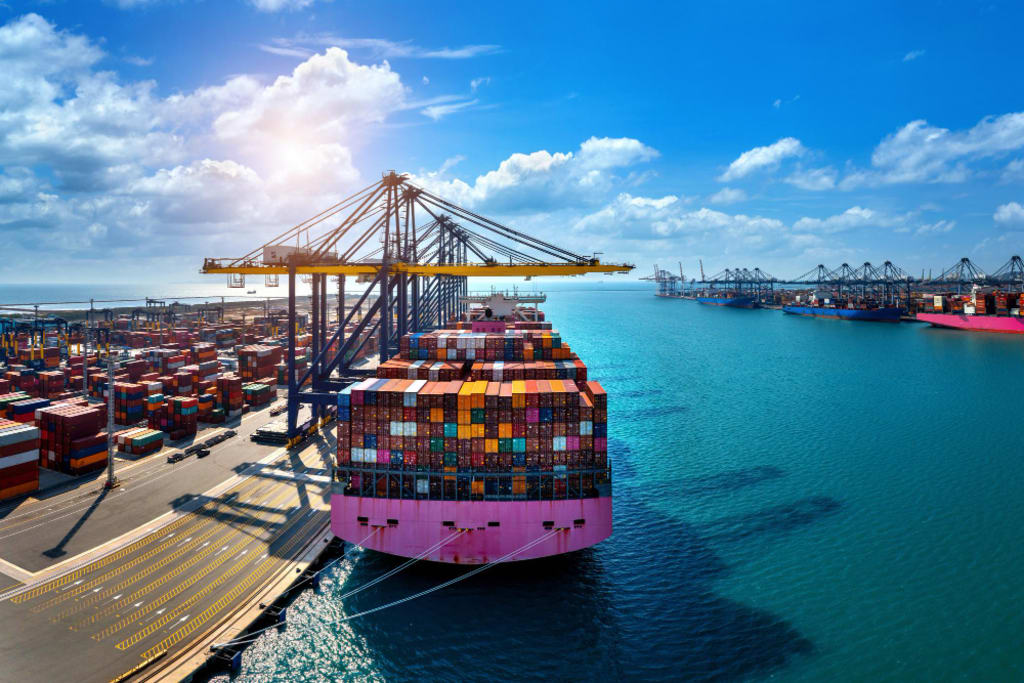Cargo Insurance for Inland Water Transportation
The Benefits of Cargo Insurance for Inland Water Transportation

Are you looking for a reliable and cost-effective way to protect your cargo during inland water transportation? Look no further than cargo insurance! As the global trade industry continues to expand, it's more important than ever to ensure your goods are protected from unforeseen events such as theft, damage, or loss. In this blog post, we'll explore the many benefits of cargo insurance for inland water transportation and why it should be an essential part of your shipping strategy. So sit back, relax, and let's dive into the world of cargo insurance!
Introduction to Cargo Insurance
Cargo insurance is a vital form of protection for businesses that rely on the transport of goods by inland waterway. Inland waterways are an important mode of transportation for many industries, including the shipping of agricultural products, petroleum products, and coal. While these waterways are typically safe, there is always the potential for accidents and damage to occur. Cargo insurance can provide financial protection in the event that something goes wrong during transport.
There are many different types of cargo insurance available, and the right policy will depend on the type of business and the commodities being transported. Some common coverage options include all-risk policies, which cover a wide range of risks; named perils policies, which cover specific risks that are named in the policy; and hull and machinery policies, which protect against damage to the vessel itself.
It is important to work with an experienced broker when purchasing cargo insurance, as they will be able to tailor a policy to meet your specific needs. If you regularly transport goods by inland waterway, cargo insurance should be a key part of your risk management strategy.
Benefits of Cargo Insurance for Inland Water Transportation
Cargo insurance is an important part of the risk management process for companies that transport goods by inland waterway. While the chances of a cargo loss are relatively low, the potential for a major loss is high. Inland water transportation is subject to many of the same risks as other modes of transportation, including weather, mechanical problems, and accidents. In addition, there are unique risks associated with transporting goods by barge or boat, such as sinking, capsizing, and collision.
A cargo insurance policy can help protect your company from financial losses due to lost or damaged goods. It can also provide peace of mind knowing that you are covered in the event of a major loss. Cargo insurance is typically written on an all-risk basis, which means that it covers all causes of loss unless specifically excluded in the policy.
There are many benefits to carrying cargo insurance, including:
• Protection from financial losses due to lost or damaged goods
• Coverage for all causes of loss unless specifically excluded
• Peace of mind knowing you are covered in the event of a major loss
• Ability to customize coverage to meet your specific needs
How Does Inland Water Transportation Impact Shipping Costs?
Inland water transportation is a vital part of the shipping industry, and it can have a significant impact on shipping costs. Inland waterways are used to transport goods from one point to another, and they can be an efficient and cost-effective way to move cargo. However, there are some risks associated with inland water transportation, and these risks can impact shipping costs.
Cargo insurance is one way to mitigate the risks associated with inland water transportation. Cargo insurance can protect your shipment in the event of damage or loss, and it can help to offset the cost of repairs or replacement. Cargo insurance is an important consideration for any business that relies on inland water transportation, and it can be a valuable tool in managing shipping costs.
What Kinds of Risks Does Cargo Insurance Cover?
There are many different types of risks that are covered by cargo insurance for inland water transportation. Some of the most common types of risks that are covered by this type of insurance include:
-Theft
-Vandalism
-Damage from weather events
-Collisions
-Piracy
-And more
Who Should Consider Investing in Cargo Insurance for Inland Water Transportation?
If you are responsible for the transport of goods via inland waterways, then you should definitely consider investing in cargo insurance. Water transportation can be a very cost-effective way to move large quantities of goods, but it is also a very risky proposition. There are many things that can go wrong during transit, and if your cargo is lost or damaged, you could be facing some serious financial losses. Cargo insurance will protect you from these potential losses, and give you peace of mind knowing that your goods are covered against any eventuality.
The Cost of Insuring Your Freight on Inland Waterways
The cost of insuring your freight on inland waterways can vary depending on a number of factors. The type of cargo you are shipping, the value of the cargo, and the length of the journey are all important considerations when determining the cost of insurance.
Inland waterway transportation is a safe and efficient way to move large quantities of goods, but it is important to insure your shipment in case of an accident or loss. There are a number of different options for cargo insurance, and the best option for you will depend on your specific needs.
If you are shipping valuable or delicate items, you may want to consider full coverage insurance. This type of policy will protect your shipment against all risks, including damage, loss, and theft. Full coverage insurance can be more expensive than other types of policies, but it offers the most comprehensive protection for your shipment.
For less valuable shipments, basic liability insurance may be sufficient. This type of policy will protect your shipment against damage or loss caused by an accident or negligence. Basic liability insurance is typically less expensive than full coverage policies, but it does not offer protection against theft or other risks.
You should also consider the length of your journey when determining the cost of inland waterway transportation insurance. Longer journeys typically require higher levels of coverage, as there is a greater chance that something could go wrong during transit. If you are shipping cargo over a long distance, you may want to consider a comprehensive policy that offers protection against
Conclusion
Inland water transportation is one of the most efficient and cost-effective ways to move goods, but it’s important that your cargo is properly insured. Cargo insurance can provide you with the peace of mind that your goods are covered in case of an accident or theft during transport. By understanding the different types of coverage available, you can make sure that you have the right policy for your needs. With proper cargo insurance, inland water transportation will be more secure and safer for all involved.





Comments
There are no comments for this story
Be the first to respond and start the conversation.